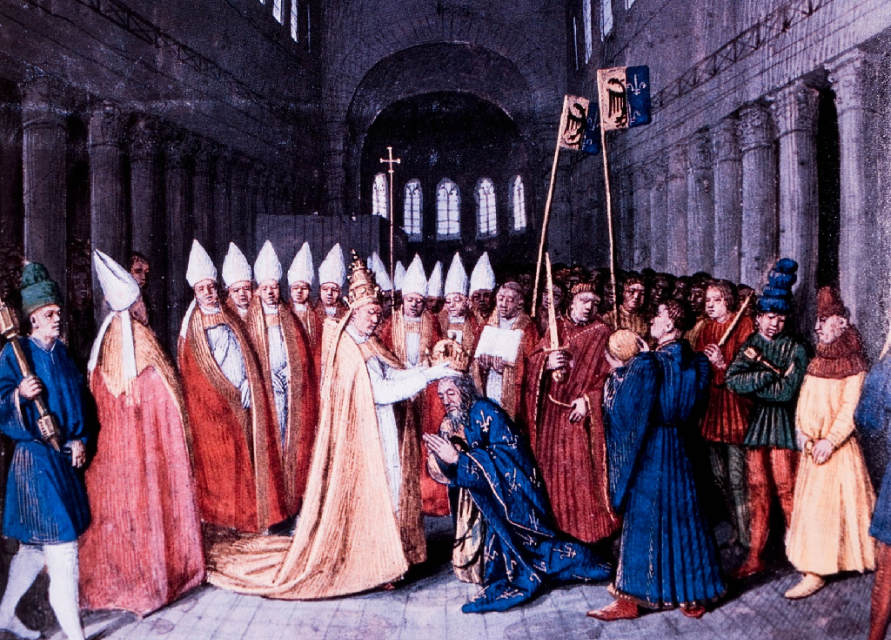Every other Monday, New Wine New Wineskins posts abbreviated versions of papers given at the annual NWNW conference in July. This week, Jason Heron and Bharat Ranganathan share from their presentation on Catholic Integralism. Check back each Monday for more content from NWNW!
Liberalism is under fire from many corners. Among its many critics are some Catholic thinkers: “the New Integralists.” In “Integralism in Three Sentences,” Edmund Waldstein offers the orientating vision for the new integralism. According to Waldstein, integralism rejects the separation of politics from the final end of human life. And to preempt disagreement about the good to which our lives should be ordered, political power should be subordinated to spiritual power. Given the various political and social problems whose roots they attribute to liberalism, the New Integralists believe that subordinating civil-political power to ecclesial-spiritual power is the only way to enact an authentically human politics.
Writing as friends with differing confessional, moral, and political views, we are troubled by the New Integralists. Considering both the bloody history of early modern Europe and the diversity characteristic of contemporary democracies, it’s worth criticizing the New Integralism on both liberal and Catholic grounds. Liberals ask the New Integralists about the means that they would use to govern everyone according to the same vision of the good. Violent coercion is a likely option. So, liberals are concerned with how the New Integralists would justify overriding their fellow citizens’ conscience, dignity, and integrity.
Catholic moral theologians ask the New Integralists similar questions. Throughout Catholic Social Teaching, we are told, human beings possess inviolable dignity deriving from our creation unto the divine image and, consequently, freedom of conscience. How would the New Integralists justify the means (i.e., violent coercion) needed to transform everyone’s conscience according to the integralist vision and do so without overriding our dignity?
The New Integralists criticize liberalism for having no substantive vision of the good and, therefore, no care for the common good. In lodging their criticism, however, the New Integralists offer no positive definition of liberalism and the liberties and rights that liberalism safeguards: for example, autonomy (i.e., everyone has a substantive vision of the good and the freedom to pursue it, so long as we don’t violate the harm principle); (2) equality (i.e., we are equal members of our moral and political communities); and (3) reciprocity (i.e., we are cooperating members of society who must deliberate and justify ourselves).
But is the liberal commitment to autonomy, equality, and reciprocity really so “thin” as the New Integralists charge? These are authentic human loves, and they are hard-won. Like a supposedly “thick” account of the common good, these loves flow from a respect for the dignity of persons and attention to what we need in order to flourish. Only those who have never been deprived of autonomy, equality, and reciprocity can suggest that these are insubstantial.
The New Integralists declare further that liberal solidarity is illusory: no “real” ties bind us because we disagree about fundamental things. But Catholics can wonder how Jesus’s ministry would have looked had he thought likewise. Jesus spoke to outsiders as friends. He saved his wrath for the powerful who couldn’t tolerate that there were people who wouldn’t submit to their authority.
Treating others as Jesus would is difficult. Liberalism has not perfected it by any means. But it has enshrined some principles necessary for practicing Christic patience with persons who aren’t perfect yet. In doing so, liberalism acknowledges the subsidiary nature of human identity. We do not all share the same vision of the good because we are all comprised by a variety of identities, many of which make us capable of contributing to our common life in a unique way.
Jason A. Heron is the S. Wilma Lyle Endowed Chair and Assistant Professor of Theology at Mount Marty University.
Bharat Ranganathan is the Brooks Professor of Social Justice and Religion in the Religious Studies Program at the University of Nebraska at Omaha.




